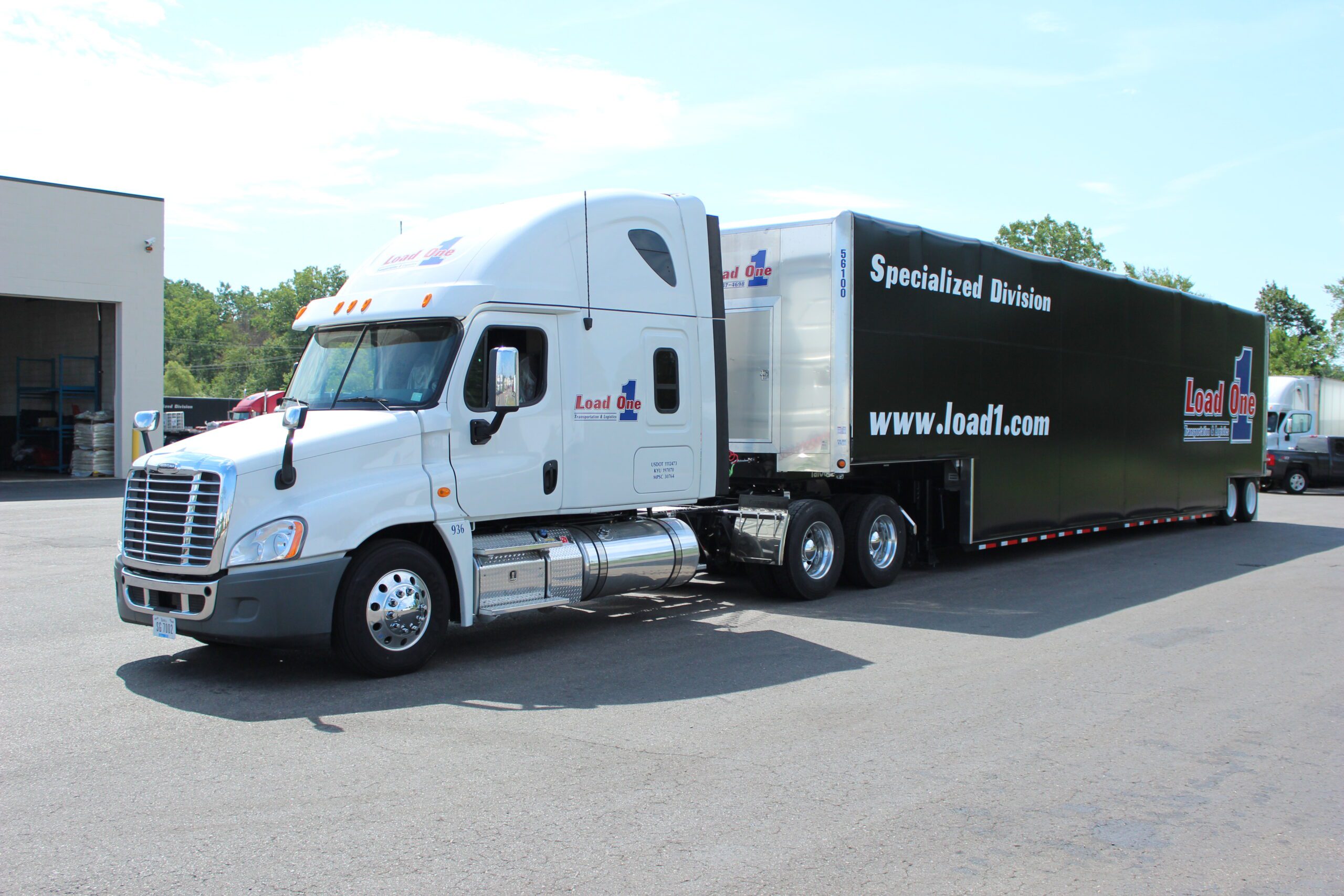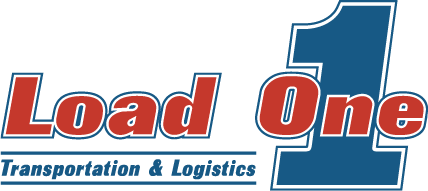
6 Most Common Mistakes to Avoid When Shipping Specialized Loads
Transporting specialized loads isn’t as simple as moving standard cargo. We are talking oversized dimensions, hazardous materials, fragile cargo, and a ton of shipping challenges and regulations.
The stakes are high, and there is no room for logistics errors. One small mistake can damage the goods or even land you in legal trouble. As specialized load shipping experts, we know how demanding it is to move your unusual cargo from one place to another.
However, avoiding these six mistakes can help you save time, reduce risks, and ship your load successfully. Let’s walk you through them one by one.
1. Failure to Check Load Requirements Properly
The first step in shipping specialized loads is knowing what you are dealing with. Many companies rush the process and end up miscalculating the size, weight, or specific requirements of the cargo. This can result in equipment breakdowns, route restrictions, or damage to the load.
Common Mistakes:
- Not accounting for the exact cargo dimensions.
- Underestimating the weight.
- Ignoring the unique handling needs of fragile or hazardous materials.
Consequences:
- Overloaded vehicles can lead to fatal accidents.
- Unnecessary delays at weigh stations or checkpoints.
- Increased costs due to last-minute adjustments.
- Risk of cargo damage during transit.
Solution: Always conduct a thorough load assessment first. If you lack the expertise or equipment to do this, consult specialized load shipping experts. They can measure the cargo accurately and ensure your transport meets its handling and weight requirements and the necessary permits.
Pro Tip: Test loading and unloading, especially if you are shipping hazardous or sensitive cargo to ensure everything works as intended.
2. Not Choosing the Right Equipment
Specialized load transportation requires the right equipment, and yet this is where many shippers make costly mistakes. It’s easier to ensure cargo safety and compliance with the right packing and handling equipment. Something as simple as using the wrong trailer could mean delays, steep fines, or even accidents.
Common Mistakes:
- Using standard trailers for oversized or overweight loads.
- Not using specialized tools, like cranes or winches, for loading and unloading.
- Overlooking the importance of air-ride suspension for fragile cargo.
- Ignoring temperature-control requirements for perishable goods.
Consequences:
- Cargo damage due to inadequate support or vibration during transit.
- Delays caused by breakdowns or the need for equipment swaps en route.
- Penalties for non-compliance with legal or safety standards.
- Increased risk of accidents.
Solution: Thoroughly check your requirements and match them with the appropriate equipment. For instance, you can use flatbed trailers with extendable decks or heavy-duty rigs for moving oversized or heavy loads. On the other hand, you will need to use refrigerated units with advanced monitoring systems for temperature-critical freights.
Pro Tip: Working with a specialized load shipping expert like Load One gives you access to a fleet equipped with modern technology, including air-ride suspension, flatbeds, and heavy-haul rigs.
3. Overlooking Legal and Regulatory Requirements
Legal compliance is non-negotiable. Every state, region, and country has specific rules for transporting hazardous, oversized, and overweight loads. Failure to adhere to these regulations can result in hefty fines, delays, or, in severe cases, the seizure of your shipment.
Common Mistakes:
- Failing to obtain specialized load permits.
- Overlooking route restrictions.
- Ignoring state or federal laws regarding hazardous material handling.
- Not knowing cross-border regulatory requirements.
Consequences:
- Costly fines that may exceed the value of your shipment.
- Delays due to unexpected detours, re-routing, or checkpoints.
- Risk of accidents if cargo is transported on non-permitted roads or bridges.
- Damage to your company’s reputation.
Solution: Understand the specific legal requirements for your cargo and route. Additionally, work with an experienced logistics provider who can handle regulatory compliance. Be sure they have cross-border shipping experience if that’s what you want to do.
Pro Tip: Always obtain your specialized load permits in advance, especially for complex shipments that require multi-jurisdictional approvals.
4. Inadequate Insurance Coverage
Insurance is a critical yet often underestimated aspect of specialized load shipping. While your shipper may have standard liability insurance, it may not be enough or lack coverage for high-risk shipments. Specialized loads, due to their value or unique nature, require custom insurance solutions.
Common Mistakes:
- Assuming standard cargo insurance covers specialized or high-value loads.
- Under-insuring cargo or leaving gaps in coverage for accidents or damages.
- Not accounting for additional risks, such as theft, environmental hazards, or transit delays.
Consequences:
- Financial losses from damages or theft that exceed policy limits.
- Delays in resolving claims due to unclear terms or inadequate documentation.
- Strained client relationships if cargo is lost or damaged without adequate remedy.
Solution: Work with your insurance provider to get a policy tailored to your cargo’s specific needs. This includes evaluating the value of your shipment, potential risks, and transit routes. It should also cover additional risks, such as weather damage, theft, or delays.
Pro Tip: Always double-check the terms of your policy, the carrier’s liability coverage, and how this will cover your risk management to avoid surprises during claims.
5. Poor Communication with Your Carrier
On-point, real-time logistics communication makes your shipping stress-free. Contrarily, any lapses can result in errors, delays, and additional costs.
Common Mistakes:
- Providing incomplete or inaccurate shipment.
- Failing to establish clear timelines and delivery expectations.
- Lack of real-time shipping coordination.
- No single point of contact for addressing concerns.
Consequences:
- Wrong route or equipment selection.
- Delays caused by miscommunication.
- Trust issues between you and the logistics solution provider.
- Increased costs from rerouting or last-minute adjustments.
Solution: Share all relevant details about your shipment upfront, including special handling needs, required permits, and time constraints. Work with a provider who is known for proactive communication and timely updates.
Pro Tip: Regularly check in with your logistics solution provider, especially for time-critical freights, to address potential issues before they escalate.
6. Not Planning for Weather and Road Conditions
Environmental factors, such as road and weather conditions, play a significant role in safe, on-time shipping. Create a detailed contingency plan for shipping your specialized load.
Common Mistakes:
- Not checking weather forecasts for the planned route.
- Ignoring seasonal variations, such as winter storms, flooding, or extreme heat.
- Overlooking road safety like bridge restrictions or low-clearance areas.
- Failing to develop a contingency plan.
Consequences:
- Weather-related delays or detours.
- Higher risks of accidents or cargo damage.
- Additional costs for re-routing and last-minute adjustments.
- Regulatory violations if roads unsuitable for shipping specialized loads are used.
Solution: Check the weather forecasts and road conditions for the entire shipping route before heading out. Use smart logistics, which involves real-time tracking and AI-powered route optimization, to stay ahead of these challenges. Create a contingency plan should the worst happen.
Pro Tip: Schedule shipments during predictable weather conditions whenever possible and factor in buffer time for unforeseen delays.
Key Takeaways for Shipping Specialized Loads Successfully
Hauling specialized loads requires precision and careful planning. So, always avoid shipping mistakes like inadequate load assessment, ignoring regulations, and poor communication. With Load One, you don’t have to worry about any of this. We do all the legwork and ensure your special freight reaches its destination on time and without hassle.
We are a leading specialized load shipping expert, handling time-sensitive shipments across the U.S., Mexico, and Canada. Contact us today to plan your next shipment!
